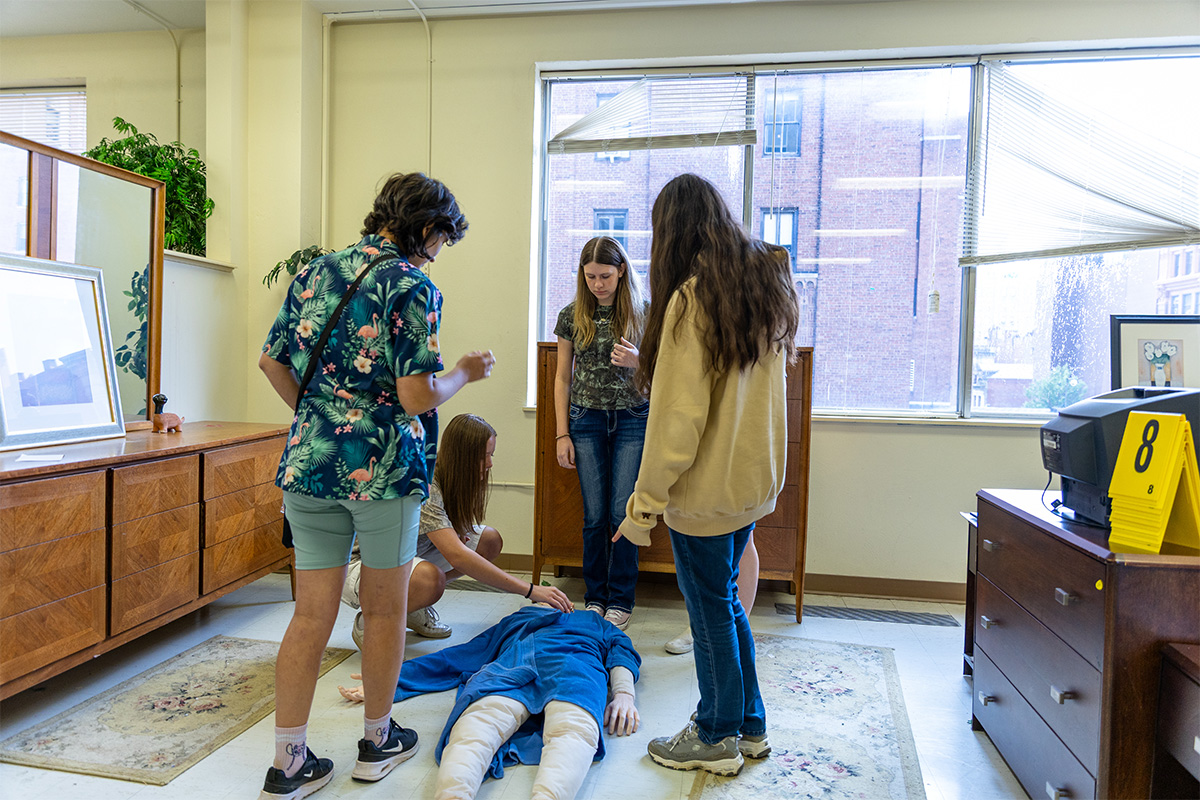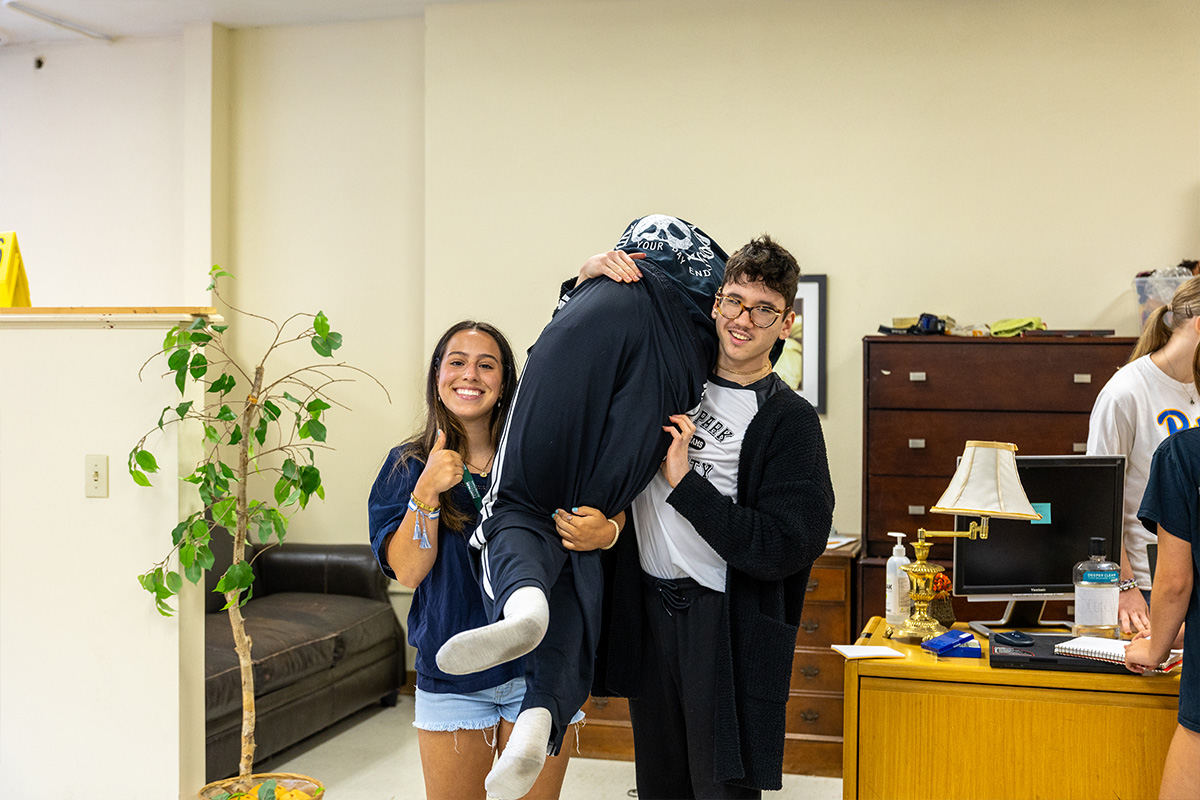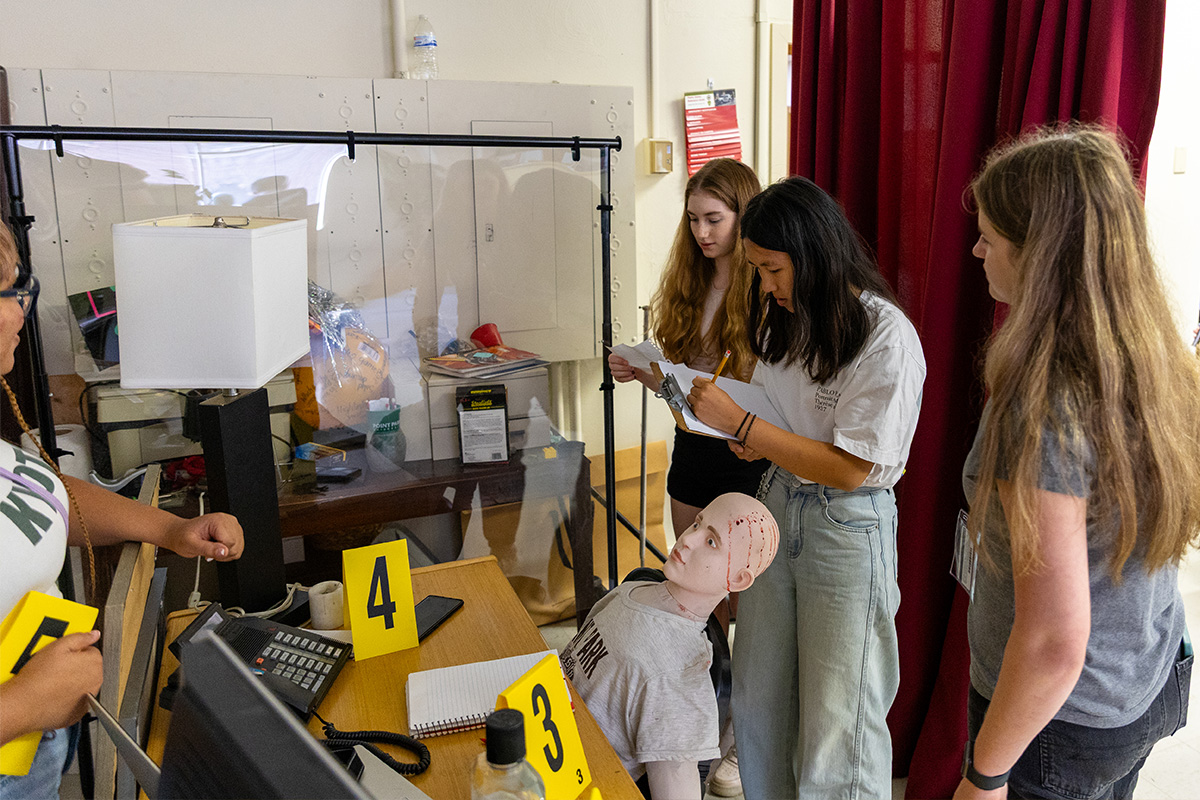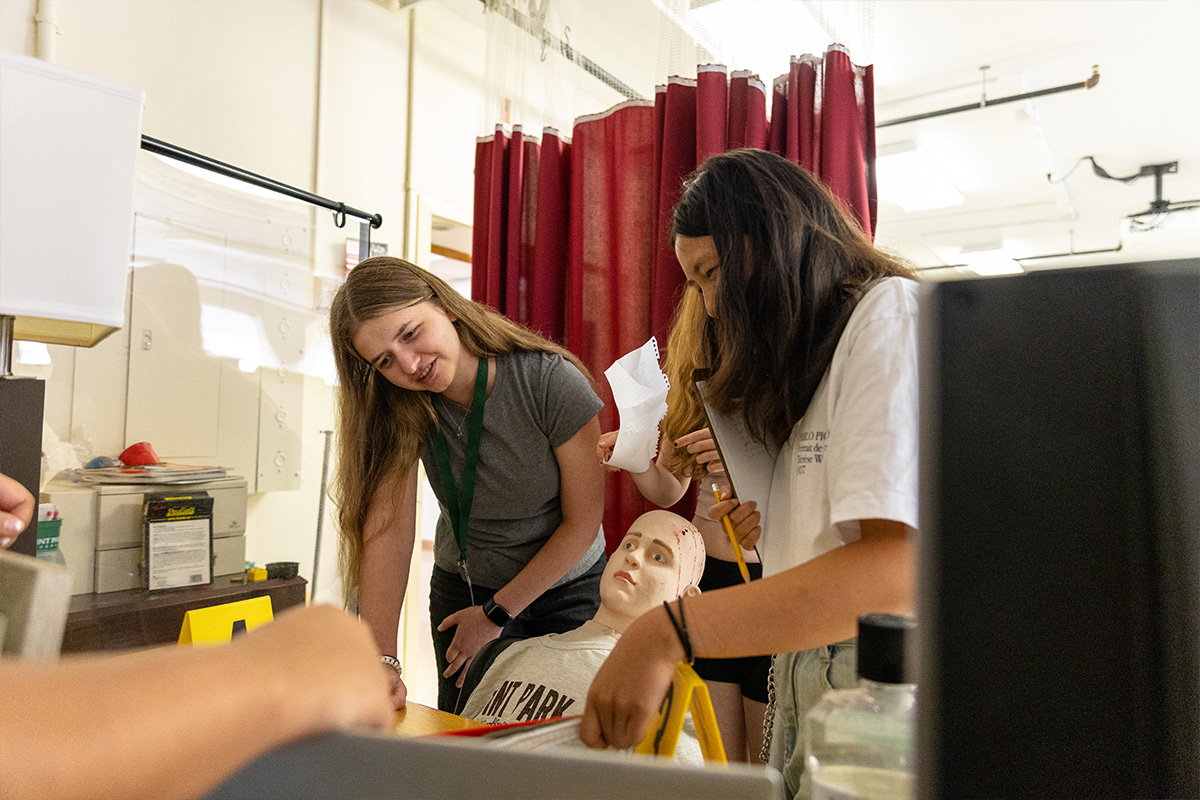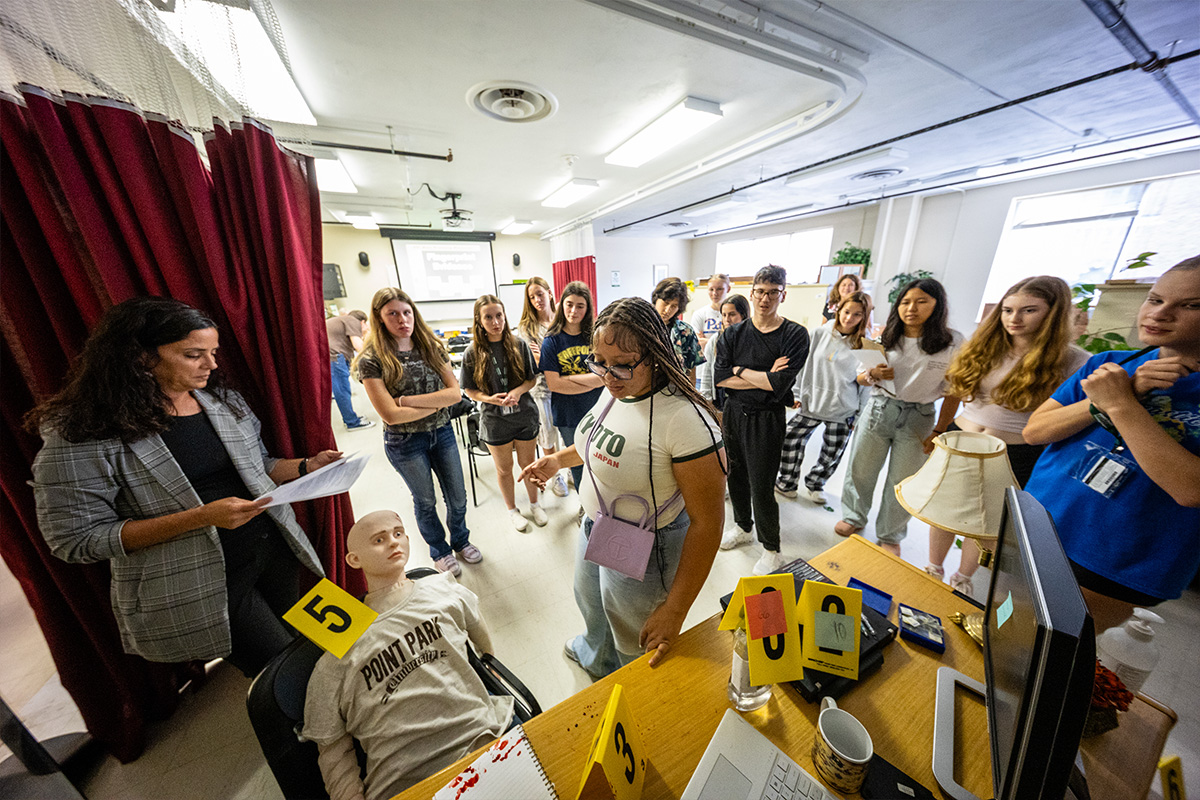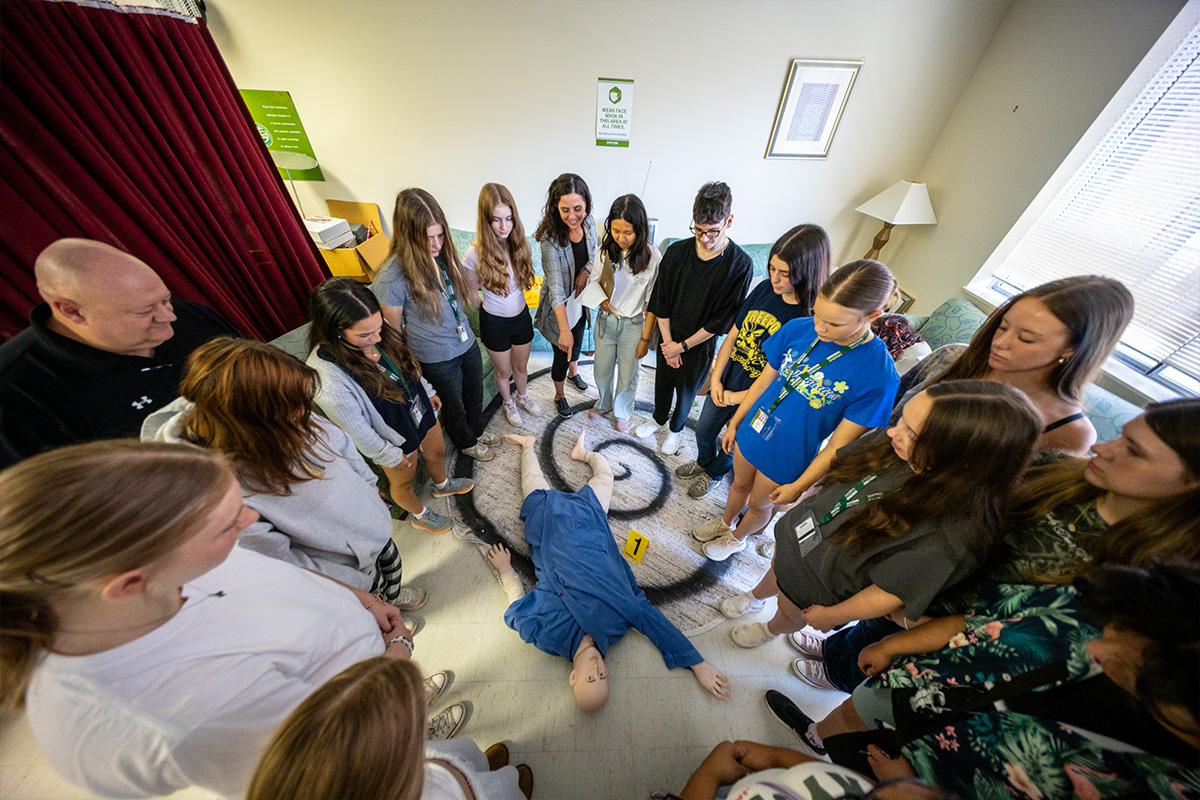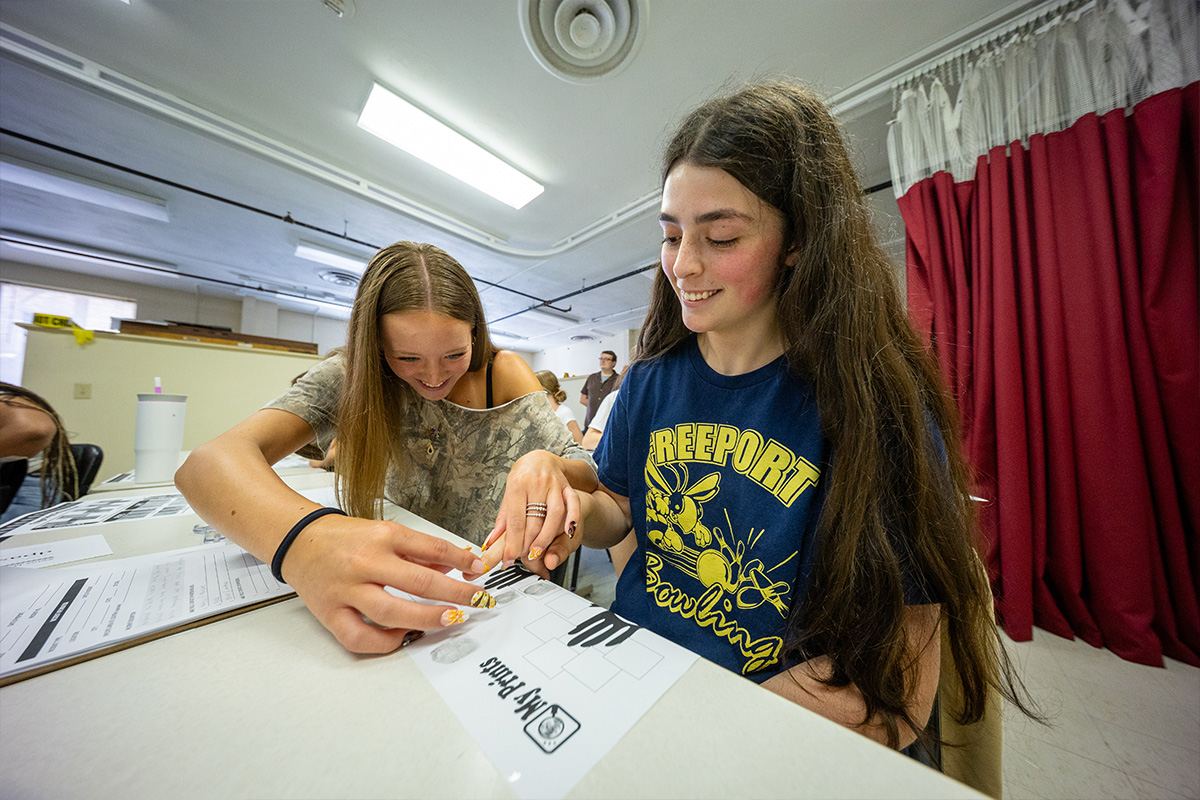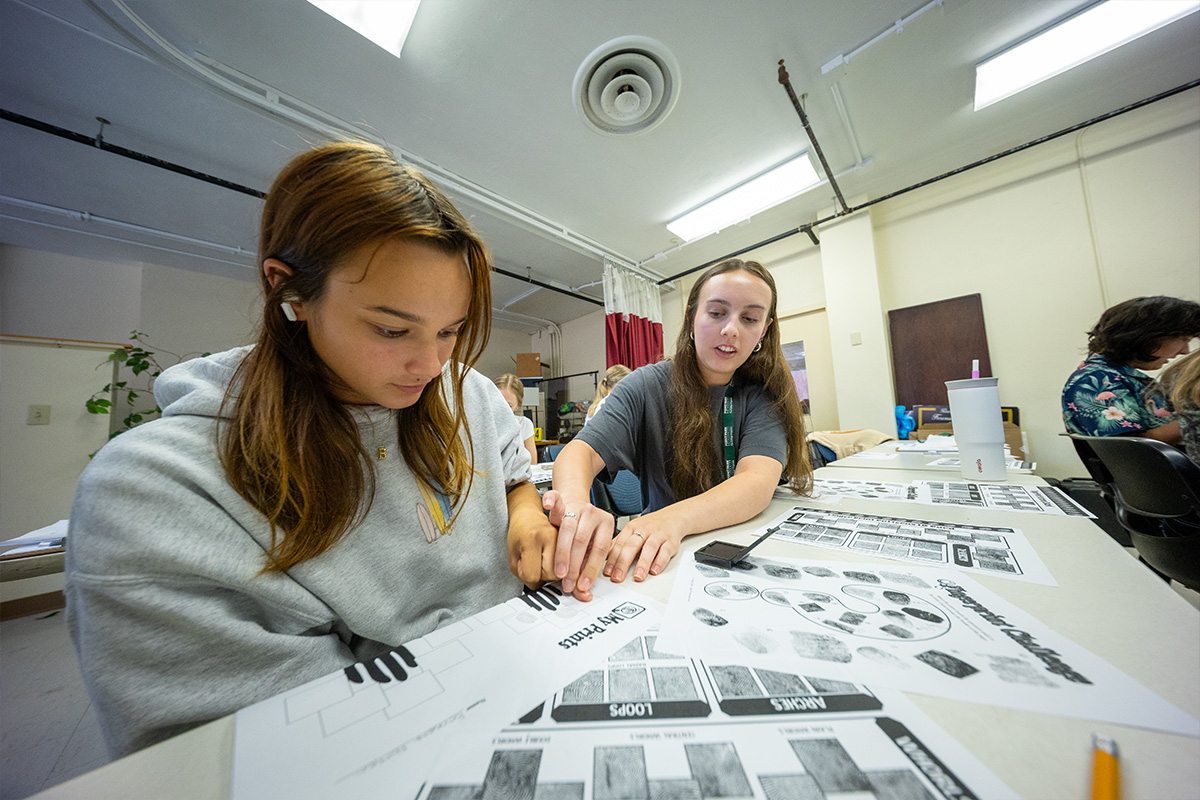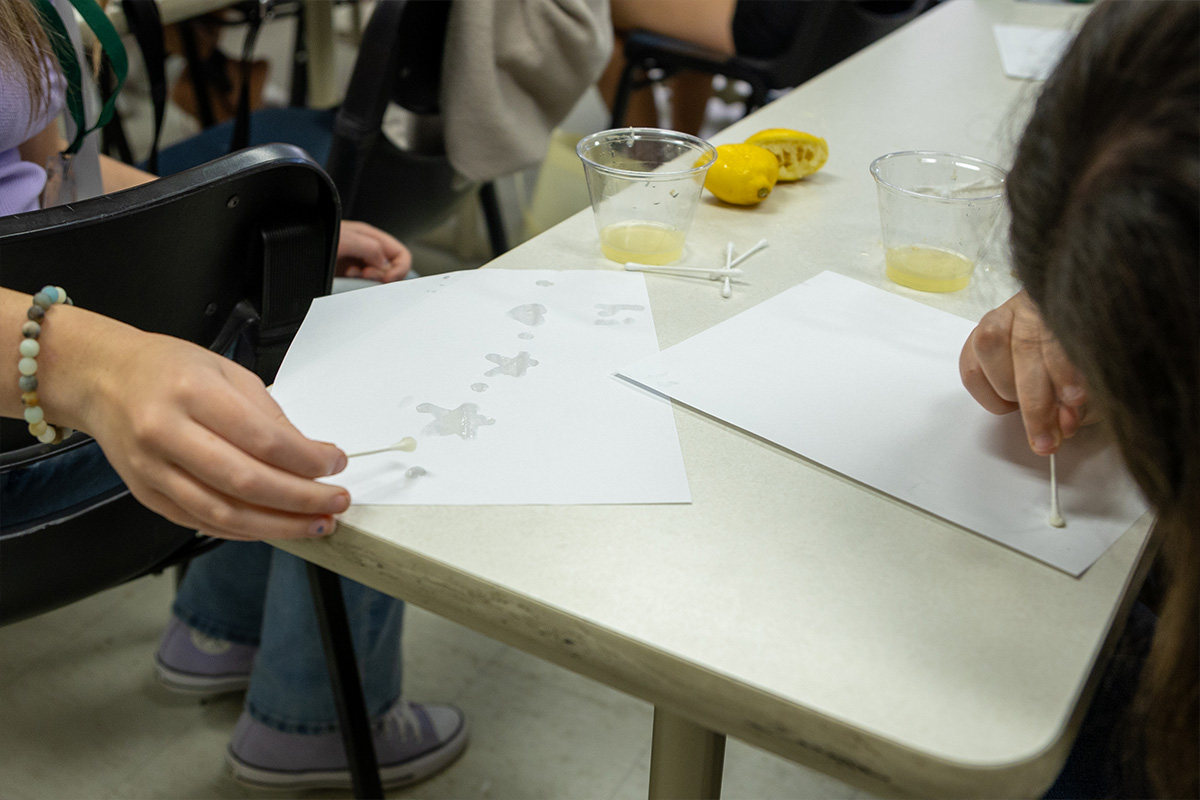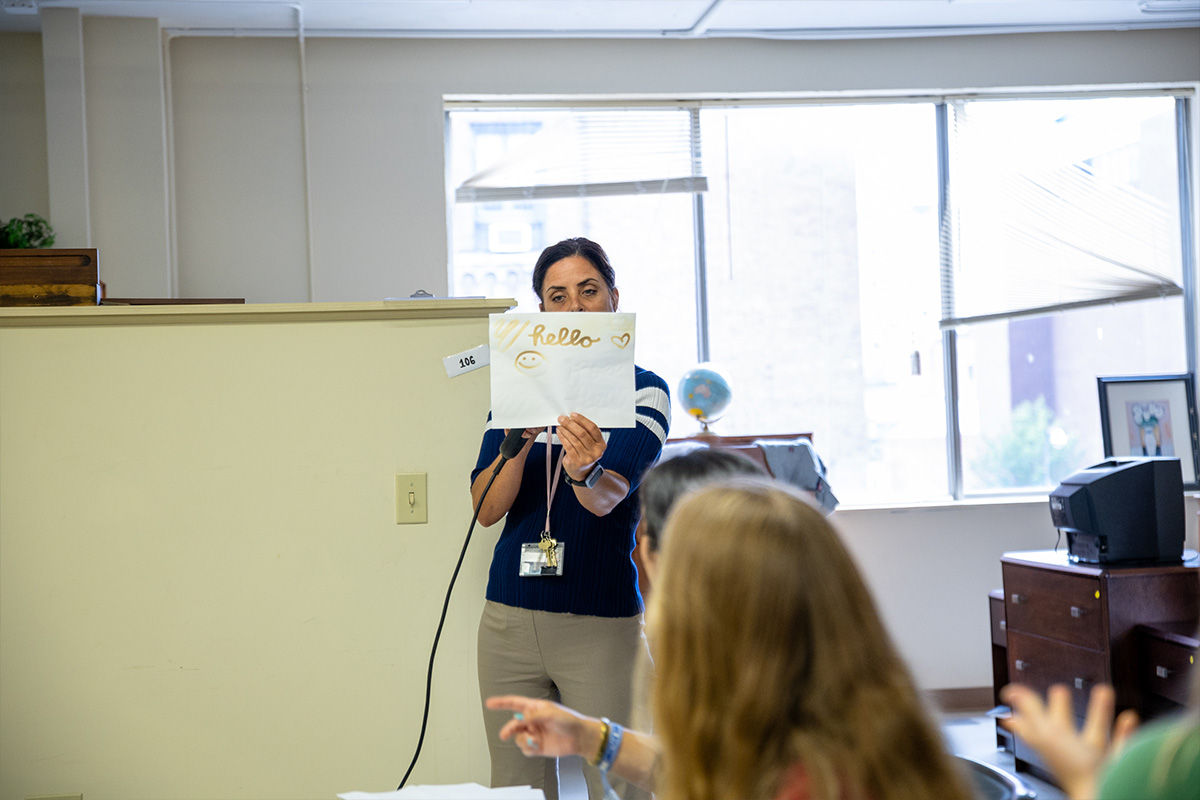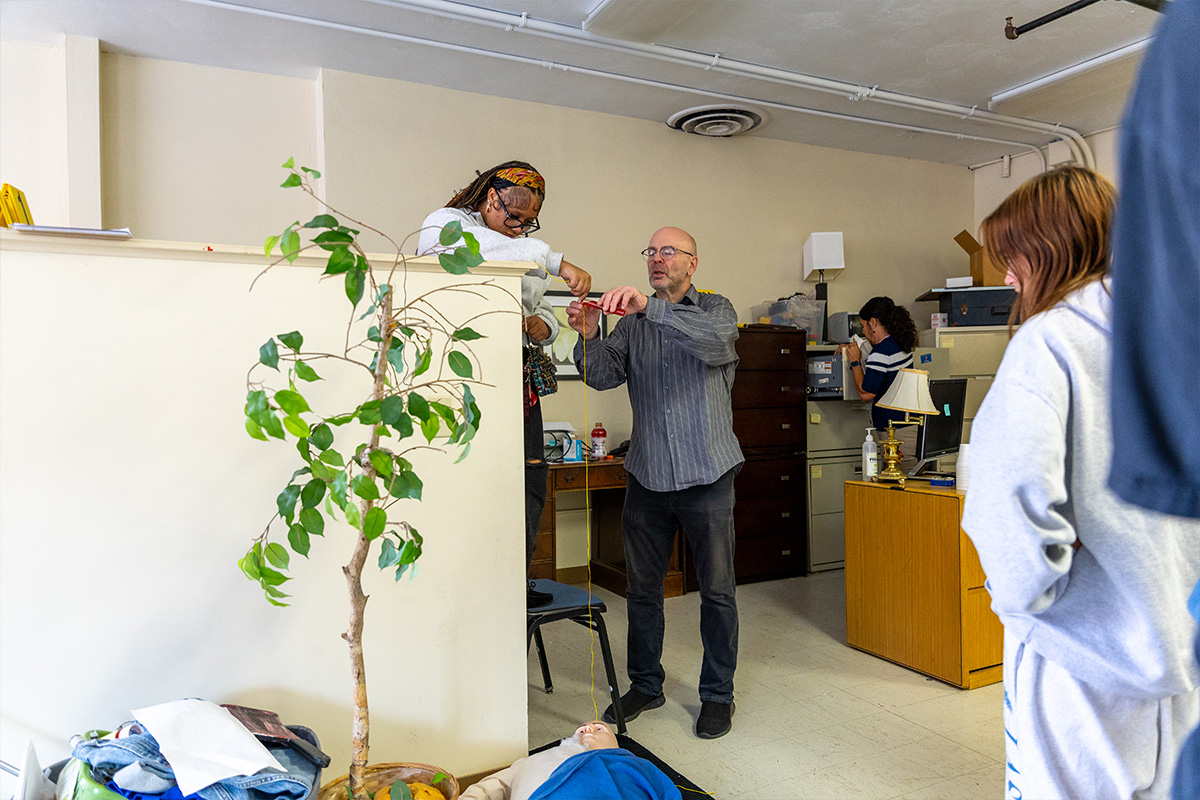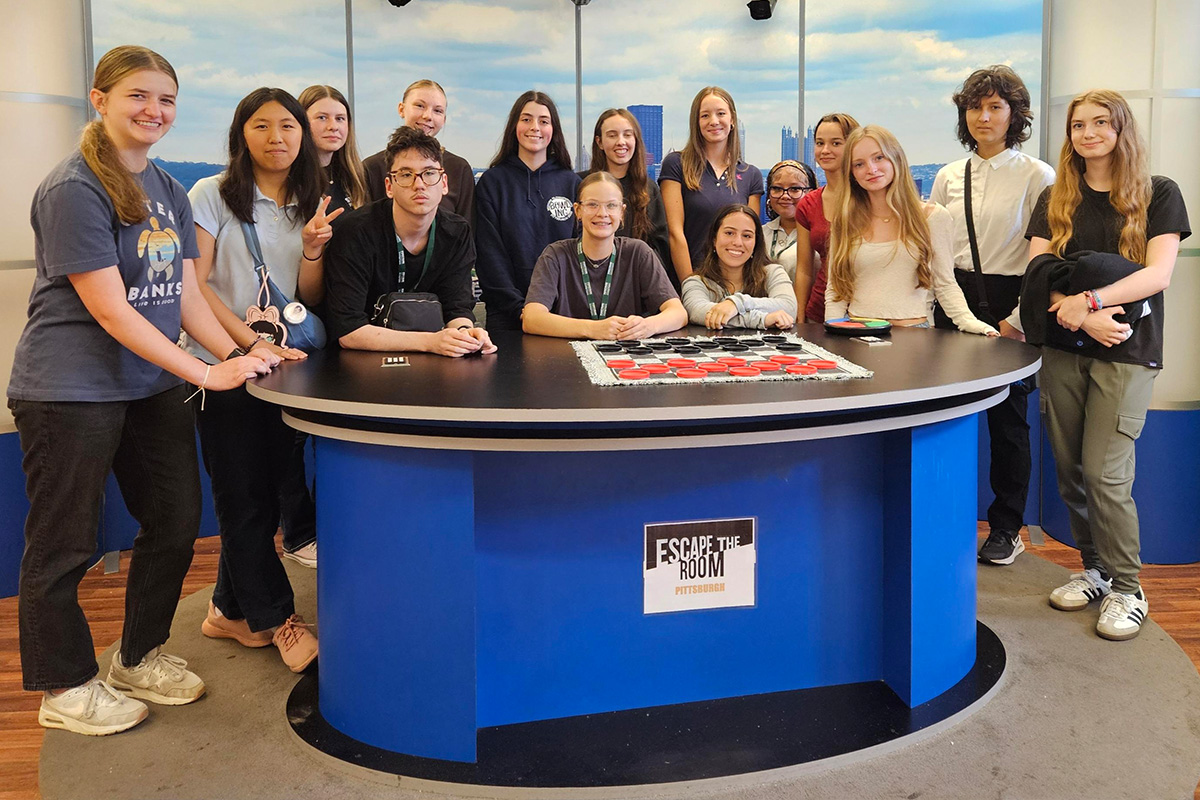High School Students Work Together to Solve Crimes in the Crime Scene House at Point Park University's CSI Summer Camp Wednesday, August 6, 2025
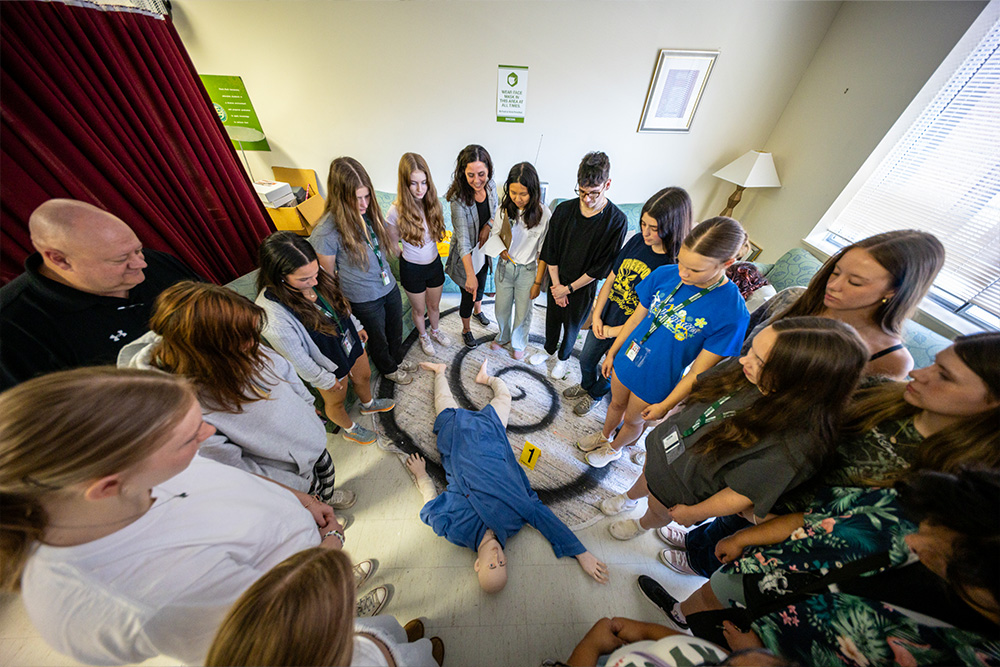
Students who attended Point Park University’s CSI Summer Camp from July 27 to Aug. 1 stand around a dummy at the "crime scene" created at the Crime Scene House.
"This camp helps teach [students] the fundamentals of forensics. They get to learn how to discover evidence, preserve it, prepare it for transfer to the crime lab, and the process beyond that."
As students investigated fictional crimes at Point Park University's Crime Scene House, laughing and friendly teasing about evidence processing kept energy high throughout the afternoon. Often, excited shouts of, “I found the weapon!” were immediately followed by panicked, “Don’t touch that, you’ll leave a print!”
That air of excitement and curiosity was a constant part of the activities at Point Park University's CSI Summer Camp from July 27 to Aug. 1. The pre-college program, which returned after a six-year hiatus, is open to students from grades 9 to 12 and offers a chance for students to learn more about crime scene investigators (CSI) and the types of jobs that people in the field do each day.
While the camp has historically been focused on a more biology-based program, this year’s instruction leaned heavier into a criminal justice angle to show students the process of crime, investigations and punishment. Instructors say that there is a growing interest to explore the criminal justice system in a fun, engaging way.
“A lot of the students here are interested in some form of law enforcement, whether that be with the FBI or with local agencies, and the crime scene investigative work that goes along with police forensics,” said Christine Secilia, Ed.D., senior lecturer and coordinator for the undergraduate criminal justice department.
For students, it’s a chance to explore something they often see on the screen but rarely get the opportunity to be as hands-on with experts.
“I love crime, especially watching the true crime documentaries,” said Gabe Schwartz, a student from Nixon, PA. “I like the psychological part of it and finding out what makes these people do the things that they do.”
For others, it’s also a way to explore the independence of living on a college campus and helping them explore potential majors for their college interests.
“I was looking for opportunities to live away from my house for a week and experience some new opportunities,” said Angela Tu, a rising sophomore from Shadyside Academy. “I wanted to learn about forensic investigation as a potential major. It seems like something that I would be interested in, so I decided to ask my mom about coming.”
A draw for several students was the opportunity to learn inside of Point Park University’s Crime Scene House, a hands-on lab that students used as a chance to show off their skills at three simulated crime scenes. Students were able to set up their scene in a fun group setting, cycling through the other groups’ scenes as they bonded over a shared purpose to be the top detectives of the day.
“Setting up the crime scene and making this story for it was really fun,” said Skylar Fitzgerald, a sophomore at Steel Valley High School. “We were joking around and pitching theories about the other teams’ crime scenes by the end.”
For part-time instructor Edward Bogats, these fictional crime scenes were a wonderful way to showcase the process of evidence gathering in a hands-on format.
“Every crime scene is different and is approached similarly, yet separately,” Bogats said. “This camp helps teach them the fundamentals of forensics. Like, what is evidence? They get to learn how to discover evidence, preserve it, prepare it for transfer to the crime lab, and the process beyond that. We try and let them know that a crime scene is like a jigsaw puzzle: you throw it up in the air, the pieces land and you have to put that puzzle back together again.”
Students learned about several topics, such as the usual police investigation process, historical uses of stealth or deception, what happens inside a crime lab and how the correctional system operates.
“It's really cool and interesting, you learn a lot, and the professors are really good at helping you and teaching about the topics,” Fitzgerald said.
Not all the experience was limited to the lab: campers also got a chance to explore all operational areas of the Allegheny County Office of the Medical Examiner. Some extra entertainment was also sprinkled in, including a trip to an escape room and tutorials on firearms safety through a hands-on experience with paintball guns at Steel Town Event Park.
Throughout both the fun and learning, instructors watched as students’ eyes lit up learning about the criminal justice process. For instructors who found their passion in the industry and continue to share their love of the field, there was no bigger reward than seeing a new generation asking questions, having fun and considering similar paths.
“It's really cool to see how they are interacting and excited to learn after just a short time together,” Bogats said. “That growth is important because communication is key in this field. I think we're all looking to have the students walk away from here saying, ‘Boy, that was pretty cool!’ There's a lot to that initial impression, and if they're interested, we can get them going in the right direction to make it a career.”
More About: CSI house, Department of Criminal Justice and Intelligence Studies, criminal justice, School of Arts and Sciences, pre-college programs


